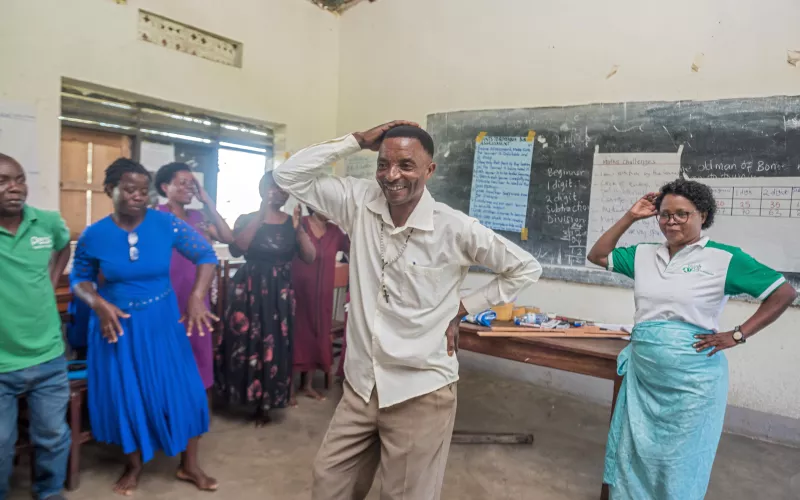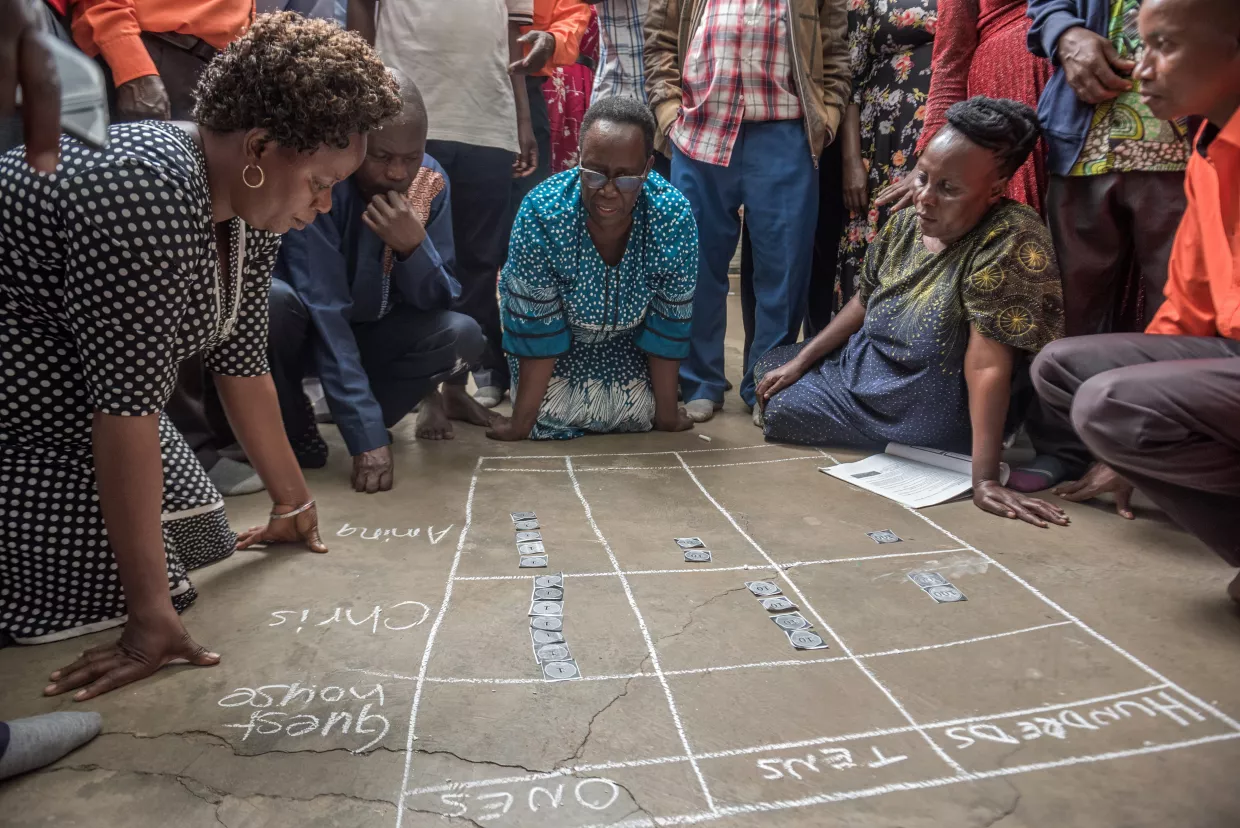Join our newsletter
By subscribing you agree to our Privacy Policy

The UCatchUp Programme gives teachers tools to implement the TaRL methodology in schools, focusing on foundational literacy and numeracy. While training workshops introduce the methodology, the real challenge has been limited support from external mentors who are mandated to offer them support because of their competing priorities, like their administrative duties.
Since 2022, UCatchUp, a government-led, school-based Teaching at the Right Level (TaRL) methodology, has been implemented within the existing government systems and structures in Kasese District and Municipality. At the core of Uganda’s education improvements, we have discovered a simple yet powerful truth: teachers have established peer support networks to learn from one another. Peer mentoring has become a major element of success, helping teachers translate training into daily classroom practice and boosting their confidence to deliver lessons that meet learners where they are.
That’s when peer mentoring came into the picture. Teachers started working together within their schools and across schools to tackle challenges, refine lesson delivery and cheer each other on. Constance Biira from Nyabugando Parents School shared, “Before peer mentoring, I faced challenges in session planning and implementing lesson activities. I was unsure where to begin or end. But after mentoring, I learned how to plan a session and organise activities sequentially.”
In many government-aided primary schools in Kasese, teachers have found that peer mentoring gave them not only new skills but also helped them feel more confident. For example, at Kasanga Primary School, Biira Alice admitted to struggling with phonics and classroom registers before receiving guidance from her peers. Through mentoring, she learned to sound out words accurately and to record attendance properly. Today, she confidently mentors others, even teachers from neighbouring schools.
The ripple effect is real. Teachers who once needed help are now guiding others. One teacher shared with us how she coached a colleague from another school before she attended UCatchUp training at Canon Apolo Primary Teachers' College in Fort Portal. Later, the colleague phoned her to celebrate scoring full marks in training quizzes thanks to that early guidance.
Such stories show how peer mentoring turns recipients of knowledge into sharers of knowledge, creating a cycle of growth and support.

Peer mentoring is also building social and professional networks among teachers. The sense of solidarity and collegiality is motivating. Sister Juliet who mentored Alice, described how colleagues from other schools often call her for advice: “They ask, ‘What should we do? How have you reached this point? Send me what you’re doing so I can compare.’ I am now well-known, I have friends, and I have confidence.”
These networks extend beyond teaching. Teachers support each other in personal ways, including sending small tokens of encouragement, like airtime or sugar, when someone is unwell. This community spirit demonstrates that peer mentoring nurtures not only professional growth but also mutual care.
VVOB with funding from uBoraBora, which is delivered by Brink and Laterite and seed-funded by the Bill & Melinda Gates Foundation, is currently conducting research to examine how teacher-initiated peer mentoring shapes the implementation of TaRL/UCatchUp. The study explores questions such as:
The qualitative findings show that peer mentoring is valued by teachers and mentors. It is driven by their own motivation and belief in UCatchUp’s benefits for learners. Peer mentoring takes many forms, ranging from one-on-one support to group sessions and spans both within and across schools. Teachers and mentors show strong agency, often initiating and sustaining mentoring relationships organically based on perceived needs, mutual trust, and professional relationships. This flexibility enables mentoring to be tailored to different teacher experience levels, topic complexity, and logistical realities. The most outstanding aspect is that peer mentoring is bridging critical gaps between formal training and everyday practice.
Teachers themselves are eager to see peer mentoring grow. One suggestion from Nyabugando Parents School was to organise peer mentoring sessions across multiple schools to increase exposure to different teaching methods and perspectives. Similarly, Kasanga Primary School teachers emphasised the value of hosting other schools and demonstrating their approach in practice.
If scaled systematically, peer mentoring could become a cost-effective and sustainable model of continuous professional development. It leverages existing teacher expertise, fosters ownership of the UCatchUp approach, and reduces dependency on external trainers.
Ultimately, peer mentoring is not just about teachers, but it is about learners. Teachers repeatedly emphasised how mentoring has improved their ability to deliver lessons effectively according to the TaRL methodology, make and use local learning aids, group pupils effectively, and track progress and this has improved their learners' abilities in numeracy and literacy. Biira Alice shared her joy when pupils who once struggled to recognise letters were now confidently reading stories aloud. “I even hugged them because they did something wonderful,” she said, “and I knew peer mentoring had helped me help them.”
"Because teachers understand better, they teach themselves. When I peer mentor another one, he or she also uses the methods to ease teaching.”
As the Ministry of Education and Sports works to tackle learning poverty, approaches like UCatchUp show the value of practical, teacher-led solutions. Peer mentoring helps make sure new ideas don’t fade after training but instead ensures that they grow and thrive in classrooms.
The ongoing research will give more evidence, but the stories from Nyabugando Parents School and Kasanga Primary School already show the impact: teachers teaching teachers, strong communities forming and children learning better as a result.
As Sister Juliet summarised: “Because teachers understand better, they teach themselves. When I peer mentor another one, he or she also uses the methods to ease teaching.” Peer mentoring is proving to be more than just a support mechanism but a catalyst for change in Uganda’s classrooms.
By subscribing you agree to our Privacy Policy
Julien Dillensplein 1 bus 2A
1060 Brussels
Belgium